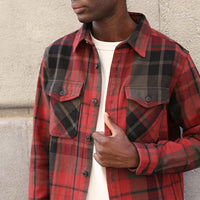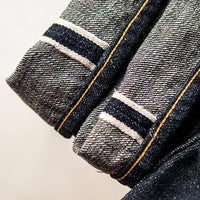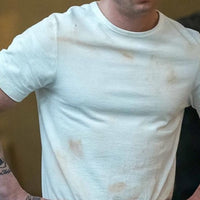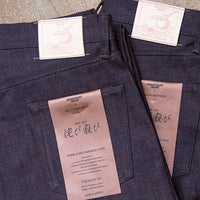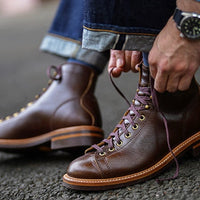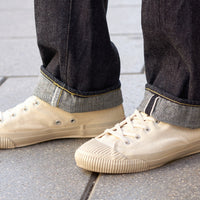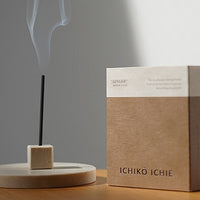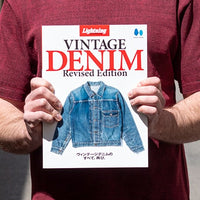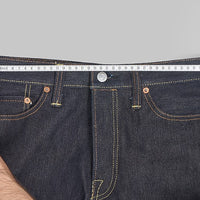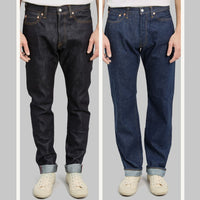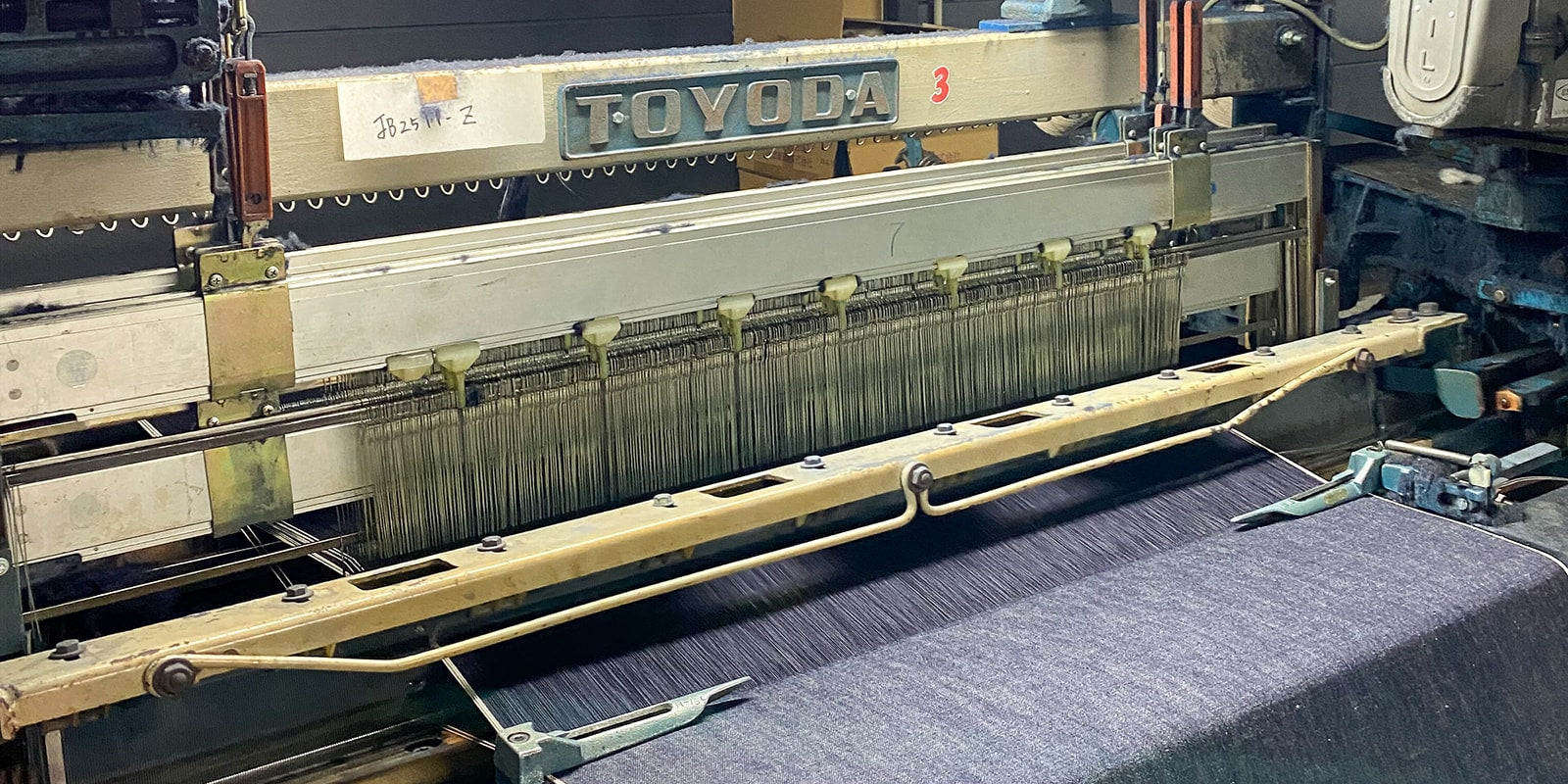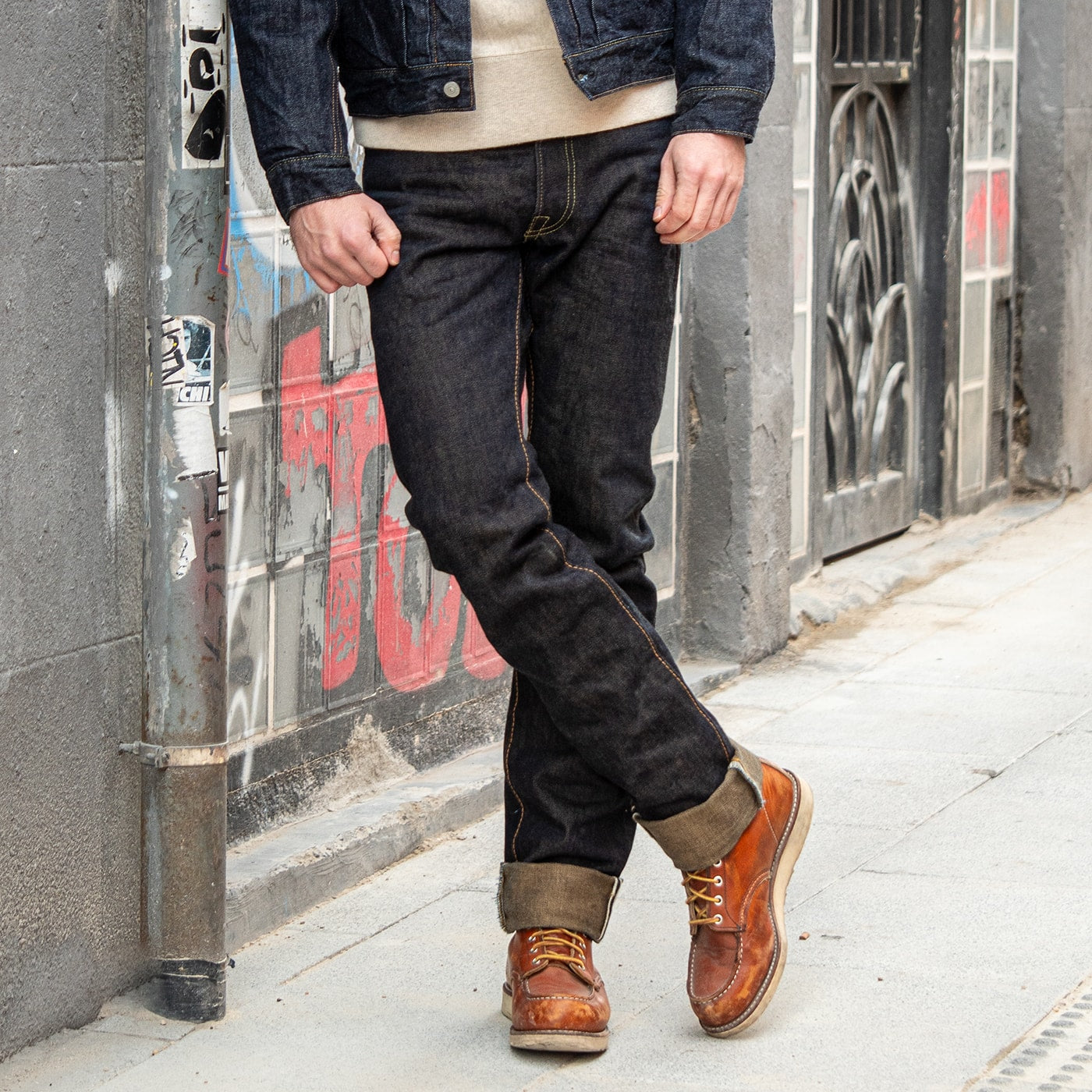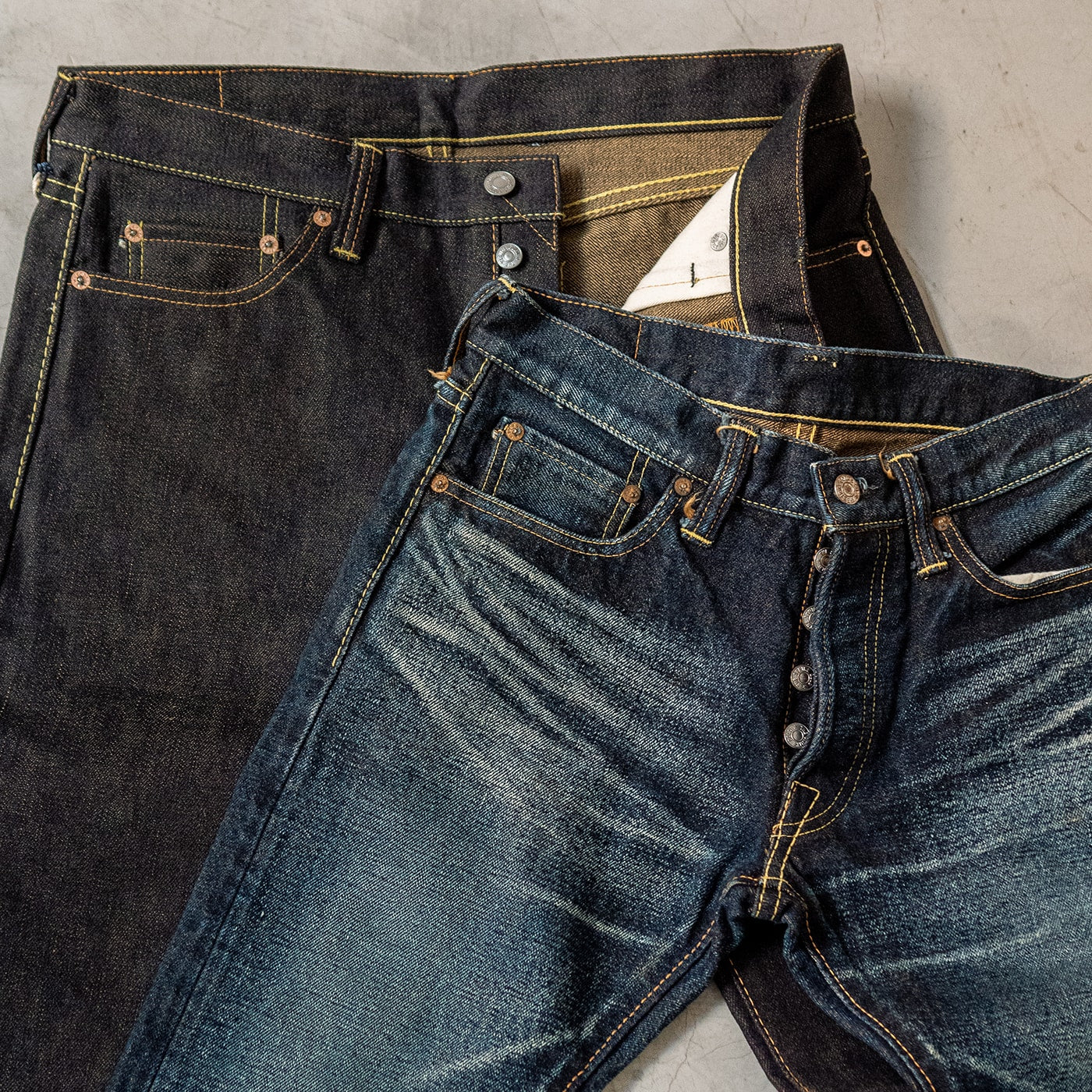Our Denim Types
All the denim you will find in Redcast Heritage Co. is of course Selvedge.
The denim fabrics that go into the jeans and jackets we sell at Redcast Heritage Co. boast the best quality you can find today, and all of them are selvedge. The word selvedge refers to the self-finished edge of a fabric. Selvedge fabrics are produced on antique shuttle looms that interweave the warp and weft threads by means of a component called a shuttle, which loops the warp thread back and forth on the loom, threading it through the weft threads in a unique way that provides a resilience impossible to achieve on the modern looms used today in industrial production.
Most shuttle looms producing the denim we sell in our store are 80 to 90 years old and are 10 times slower than modern mass-production looms. Furthermore, such looms are far narrower than modern looms and the fabric width they produce does not normally exceed 90 cm (approximately half that of a modern projectile loom). This means that in any selvedge denim garment, whether jeans, jackets or even shirts, we find the end of the fabric in the seams, which prevents the usual fraying and unstitching we encounter in mass-produced garments.
Given the boom in large-scale industrial production and resulting drop in costs, shuttle looms ceased to be used many decades ago. However, a few are still in operation, mainly in Japan.
The vast majority of denim fabrics used in our store’s garments have been made in Japan, mainly in Kojima (the town where Japanese denim craftsmen reside). The rest was produced in the White Oak plant, a small factory belonging to the Cone Denim company located in North Carolina (USA). This was the last factory to produce denim selvedge in the whole of the USA and closed down recently, in 2017.
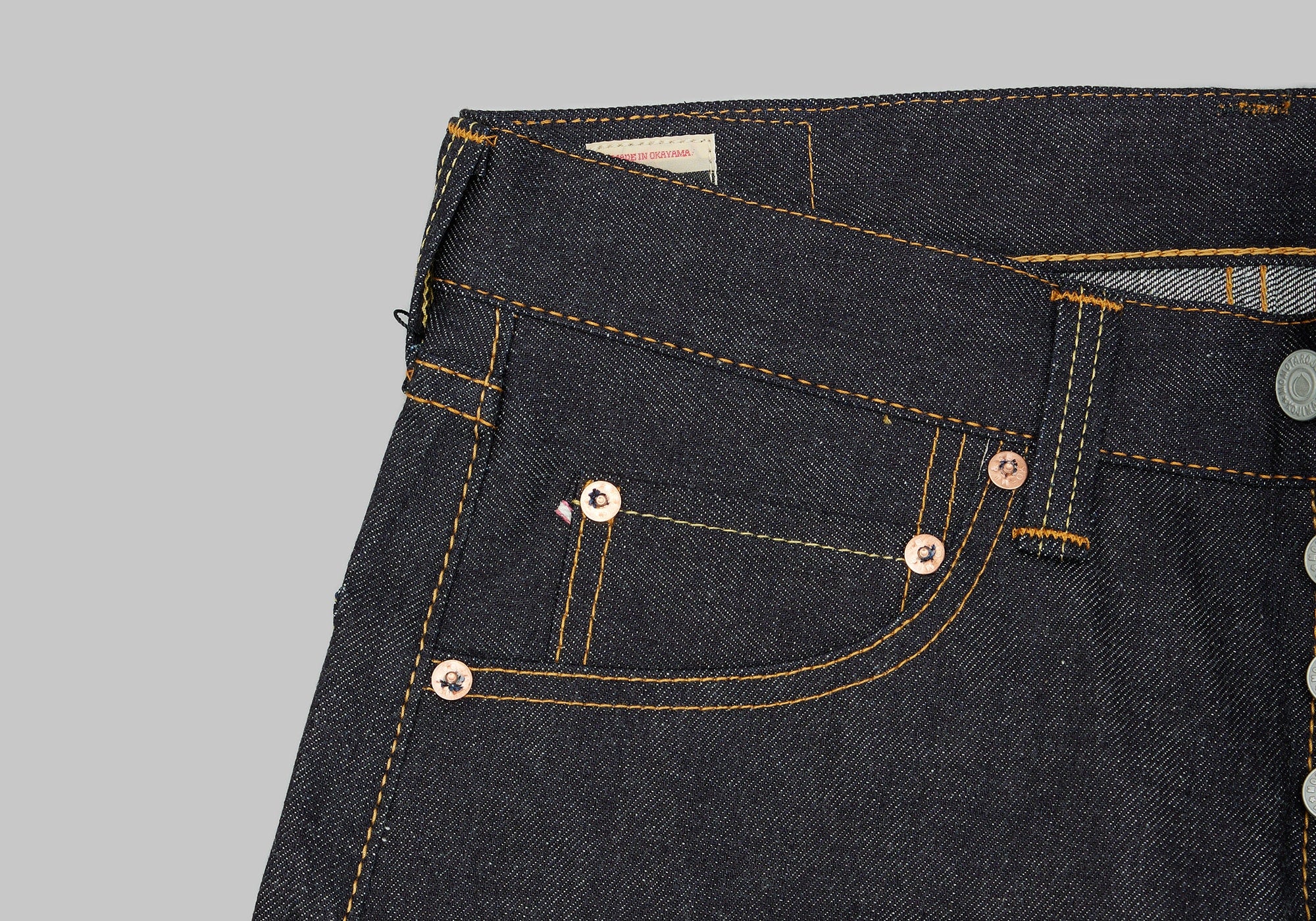
TYPES OF DENIM: SANFORIZED AND UNSANFORIZED
Sanforized (or pre-shrunk): These are denim fabrics to which a mechanical process called “Sanforized” is applied as soon as they come off the loom and which prevents garments from shrinking when washed. Shrinkage will be minimal and denim jeans or jackets made from sanforized fabric will always be a good choice if you are looking for a US-made fabric that does not need soaking in water to get rid of shrinkage before you use it.
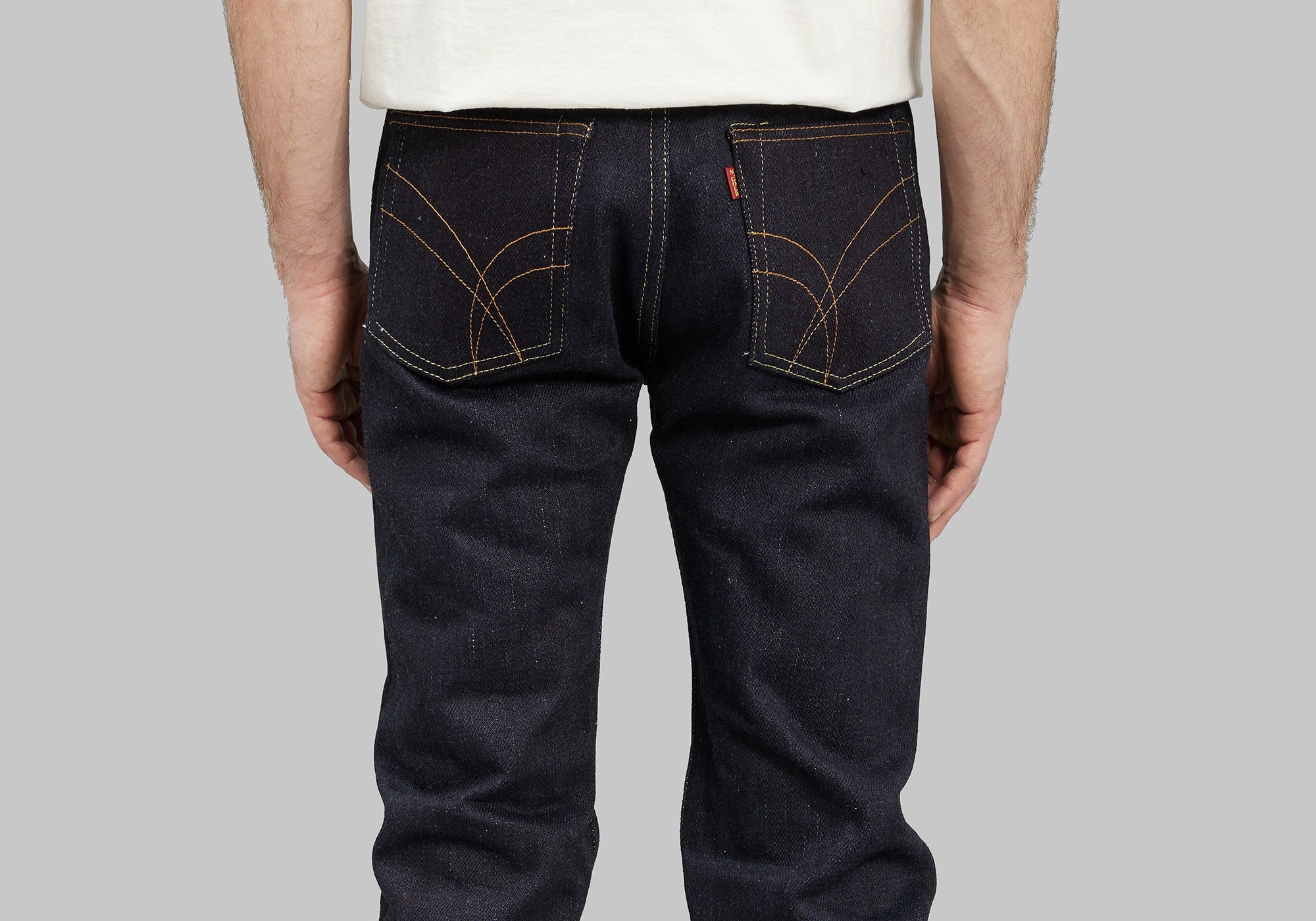
Unsanforized (or non-pre-shrunk): These are the most common fabrics produced by denim craftsmen in Japan. These denim fabrics have not been subjected to a shrinkage-preventing process, thanks to which they have a unique texture and acquire a very distinctive contrasting look in the wear and tear produced by years of use.
When Japanese artisans make their garments from unsanforized denim fabrics, they usually give them two types of finishes:
- Non-wash: This is the purest raw denim in existence. The fabric has not been pre-shrunk and the garment has not been washed. Fully virgin denim fabric is used and its texture and stiffness are testament to this. It is indispensable to soak the garment in warm water for approximately 1 hour before using it for the first time so as to get rid of any shrinkage, and its fit will be perfect (more info here).
The garment will shrink between approximately 1” and 2” in the waist and between 2” and 3” in the length. Each garment’s shrinkage measure is given in detail in the article description and will have to be taken into account when choosing the size (ideally, you will always check our sizing chart, which we attach to each garment’s description, and take the shrinkage into account).
Despite this brief contact with water, in the first weeks the garment will be stiff and rough, but little by little we will feel it softening and perfectly moulding to our body (this is a very similar sensation to what happens with leather boots). A non-wash unsanforized denim garment is for you if you are looking for stiff Japanese apparel with a unique texture and want to feel how it slowly softens with use; it is the favourite finish of purist lovers of denim.
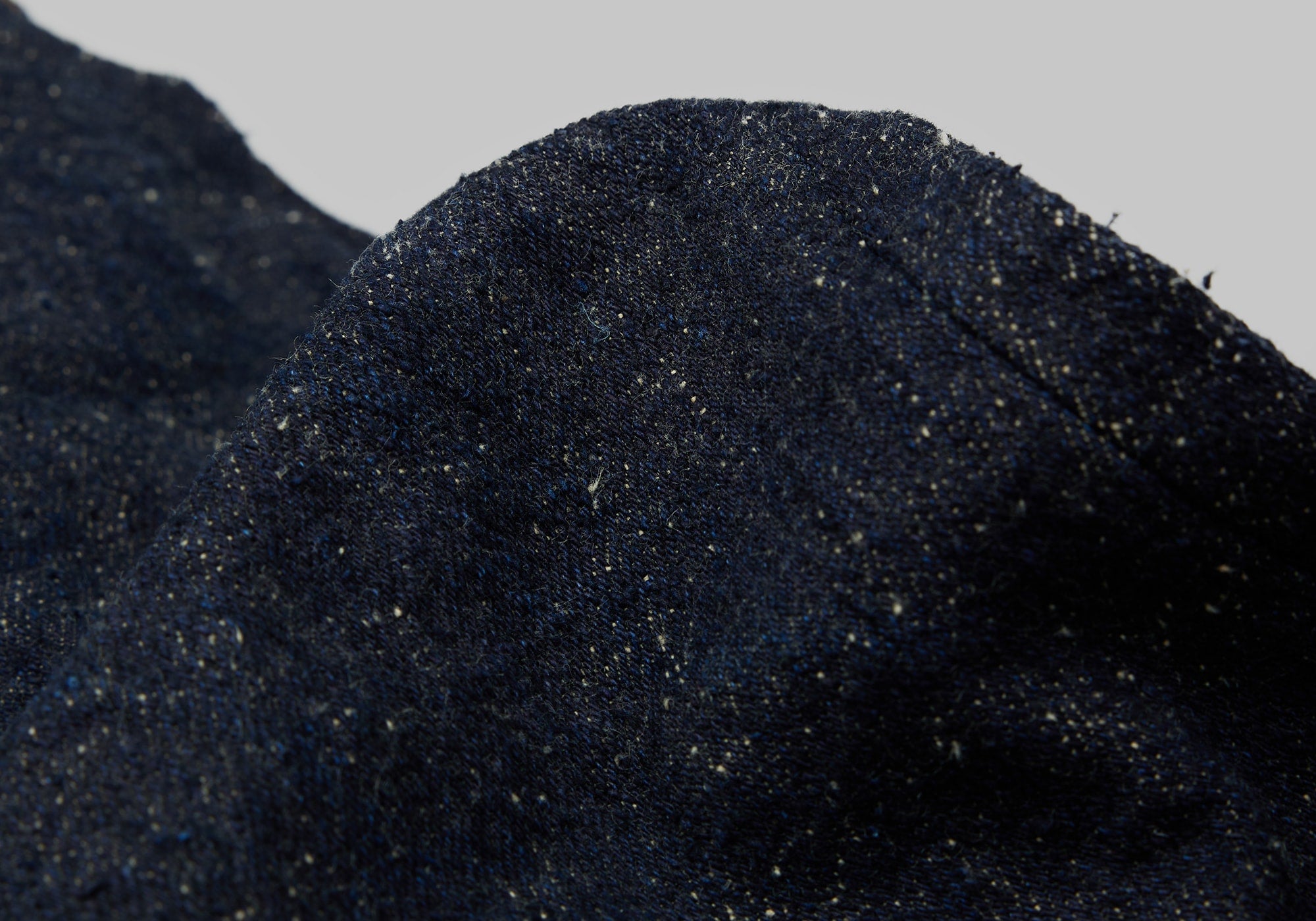
- One-wash: Once the garment has been made, and before it is labelled, a light machine wash is applied, followed by drying in sunlight. This washing and sun-drying makes the garment lose its shrinkage, yet the amount of indigo loss is minimal. The purpose of this process is to remove the need to shrink your denim garment prior to wearing it. This makes it much easier to pick your size. The denim is still raw, dark, and crispy, it has just been washed (once) by the denim company. Will one-wash denim fade? The answer to this question is a categoric yes. The fading potentials of different types of denim will always be up for discussion – and different people will have their preferences and opinions – but with enough wear, all raw denim will fade in a way that’s unique to its owner.
Although some of our denim garments have been made from sanforized fabrics, the denim you will find in our store is mostly unsanforized given that most of our brands are Japanese. We select some of these garments in a “non-wash” version and others in a characteristic “one-wash” version that is always labelled in the garment description.
All our denim is Raw in that it contains the highest possible amount of indigo and has not been worn down in the workshop. This means that the garment will gradually acquire a unique character over time and washing, and wearing in will occur according to the nature of the fabric and the use you give the garment. We like to view raw denim as a blank canvas on which everyone is the painter. No two same jeans will wear down in the same way.
All our denim garments carry a label specifying the type of fabric from which they are made in the product description.

